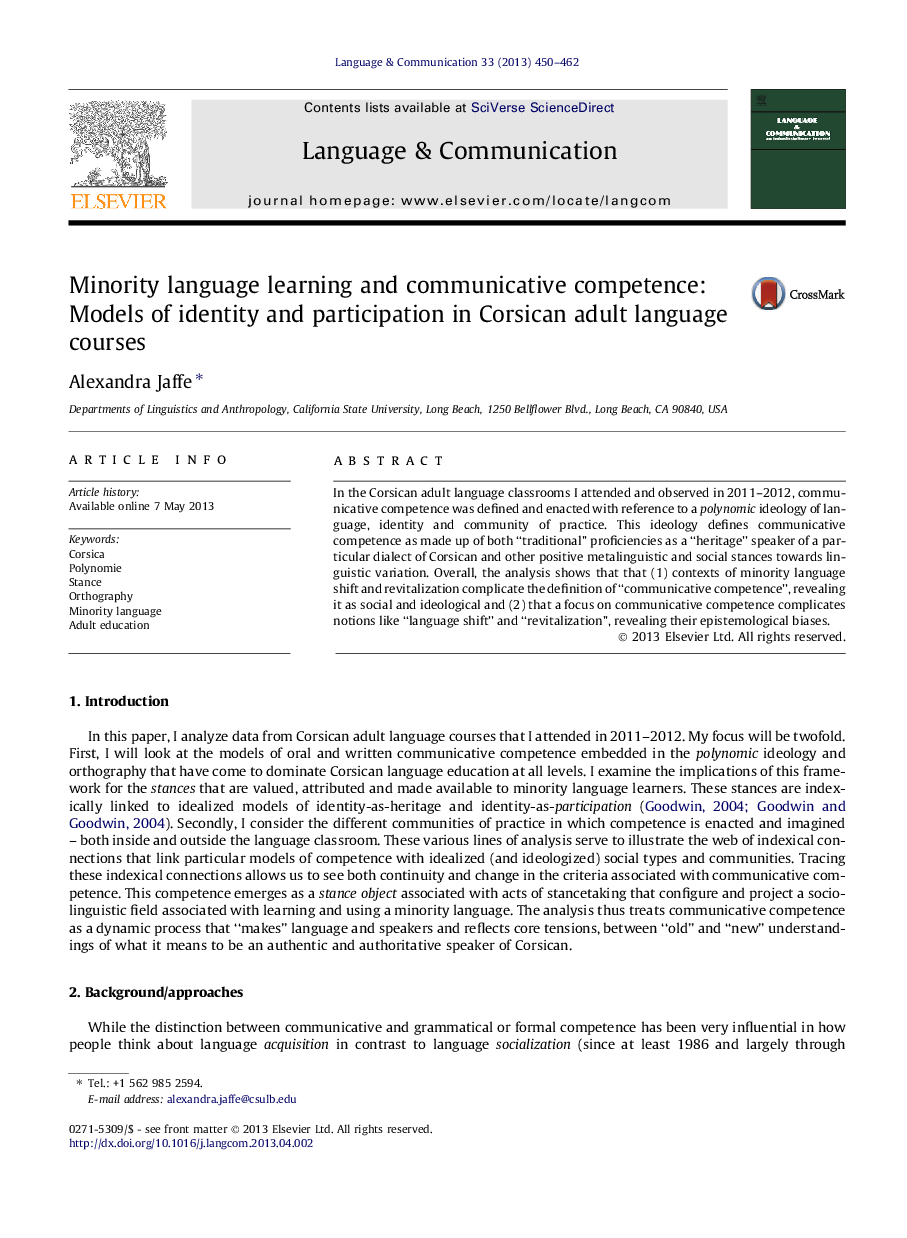| Article ID | Journal | Published Year | Pages | File Type |
|---|---|---|---|---|
| 934928 | Language & Communication | 2013 | 13 Pages |
•“Polynomie” is a social contract which imposes a high bar relative to sociolinguistic knowledge.•In minority language revitalization contexts, communicative competence is socially redefined.•Meta- and socio-linguistic knowledge can be highly valued for heritage language learners.•Communicative competence involves inhabiting particular stances (taken and ascribed) over time.
In the Corsican adult language classrooms I attended and observed in 2011–2012, communicative competence was defined and enacted with reference to a polynomic ideology of language, identity and community of practice. This ideology defines communicative competence as made up of both “traditional” proficiencies as a “heritage” speaker of a particular dialect of Corsican and other positive metalinguistic and social stances towards linguistic variation. Overall, the analysis shows that that (1) contexts of minority language shift and revitalization complicate the definition of “communicative competence”, revealing it as social and ideological and (2) that a focus on communicative competence complicates notions like “language shift” and “revitalization”, revealing their epistemological biases.
